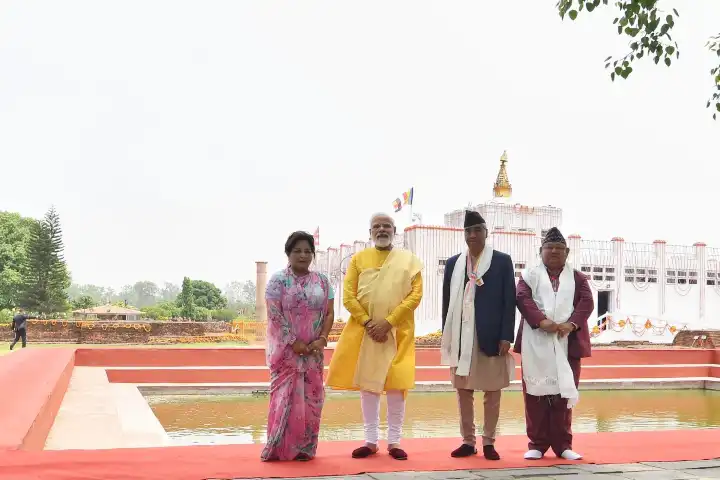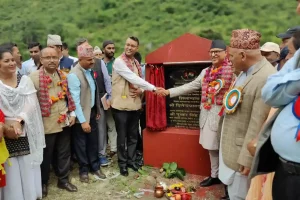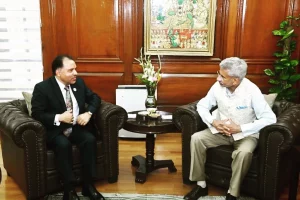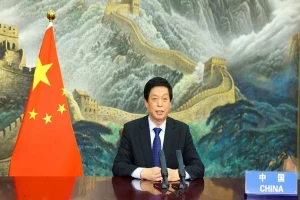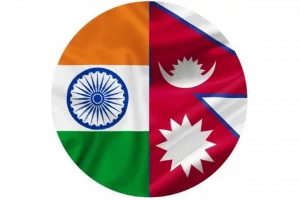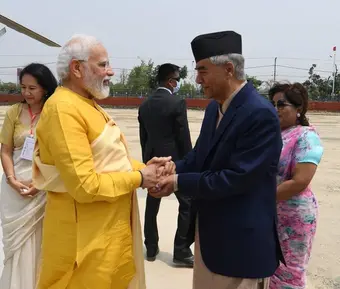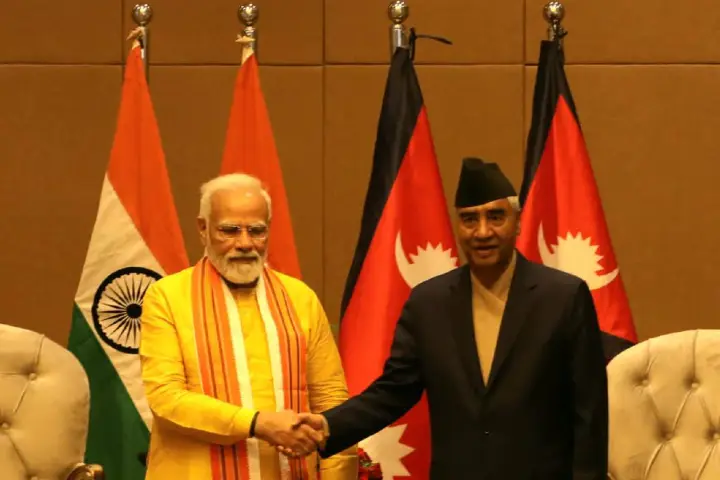Prime Minister Narendra Modi’s visit to Nepal’s Lumbini on the occasion of Buddha Purnima is more than symbolic. This is Modi’s fifth visit to Nepal.
"Landed in Nepal. Happy to be among the wonderful people of Nepal on the special occasion of Buddha Purnima. Looking forward to the programmes in Lumbini," Modi said in a tweet.
The people of Nepal will also have “huge expectations” from the visit especially at a time when its economic situation is deteriorating.
The visit goes on to signify the age old cultural and social commonalities that bind the two countries but more importantly it underlines the importance Nepal has in India’s Neighbourhood Policy. The day long visit will further boost economic cooperation and connectivity, analysts said.
Last month Nepalese Prime Minister Sher Bahadur Deuba was on a three day visit to India. Besides holding back to back meetings, Deuba also visited Varanasi.
Earlier, in an interview to Rising Nepal last year, Deuba said, “We have an open border with India and there is people-to-people exchange at the greater level so maintaining good relations with the southern neighbour is in our interest. Nepalis go to India for work and pilgrimage.”
“We have more intensive public, cultural and commercial relations with it,” he told the news organisation.
Despite sharing an open border policy, India-Nepal relations had nosedived last year after Nepal’s former Prime Minister KP Sharma Oli issued a new political map claiming the disputed areas in the Kalapani region as part of the Himalayan nation.
“Shared religious and cultural ties feed exponential economic growth. The present ruling party BJP under leadership of PM Modi stands a unique chance to grow bilateral relations of India-Nepal holistically,” Navita Srikant, foreign policy expert, who has been focusing on Nepal, told India Narrative.
India-Nepal jointly present the heritage related to Buddhism and even Ramayana to the world which attracts tourists, researchers and academicians, Srikant said, adding that the visit on the occasion of Buddha Purnima reiterates Modi’s commitment towards deepening India-Nepal friendship and calibrating connectivity and jointly towards mutual prosperity of the people.
Former finance minister of Nepal and a member of Nepali Congress Udaya Shumsher Rana earlier said that India and Nepal have many commonalities in terms of geography, culture and religion besides heightened social interaction owing to open borders. “These factors and the interdependence on each other have helped bind the two countries despite several hiccups,” he said.
“Nepal and India and even other countries in South Asia are politically divided but culturally they share the same contours,” Rana said.
The Ministry of External Affairs in a statement last month during Deuba’s visit reiterated that Nepal is one of the main pillars of its ‘Neighbourhood First’ policy. The statement also said that the visit of Deuba to India will contribute in further cementing the traditional and age-old ties of friendship and cooperation between the two countries.
Also read: PM Modi kicks off Nepal visit with prayers at historic Maya Devi temple in Lumbini
PM Modi’s visit to Lumbini is part of India’s rise as a civilizational state






